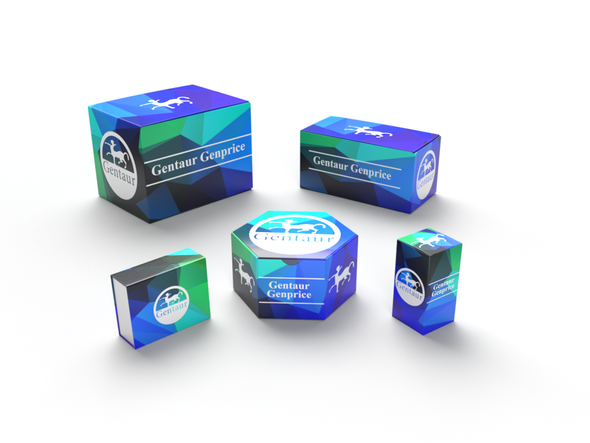740
Rabbit Vascular cell adhesion molecule 1 (VCAM-1) ELISA Kit | AE11779RB
- SKU:
- 740-AE11779RB
- Availability:
- Usually ships in 5 working days
Description
Rabbit Vascular cell adhesion molecule 1 (VCAM-1) ELISA Kit | AE11779RB | Gentaur UK, US & Europe Distribution
Species Reactivity: Rabbit (Oryctolagus cuniculus)
Abbreviation: VCAM1/CD106
Alternative Name: CD106; INCAM-100
Application: ELISA
Range: 31.25-2000 pg/mL
Sensitivity: 14.2 pg/mL
Intra-Assay: ≤5.5%
Inter-Assay: ≤7.6%
Recovery: 0, 92
Sample Type: Serum, Plasma, Other biological fluids
Detection Method: Sandwich
Analysis Method : Quantitive
Test Principale: This assay employs a two-site sandwich ELISA to quantitate VCAM1/CD106 in samples. An antibody specific for VCAM1/CD106 has been pre-coated onto a microplate. Standards and samples are pipetted into the wells and anyVCAM1/CD106 present is bound by the immobilized antibody. After removing any unbound substances, a biotin-conjugated antibody specific for VCAM1/CD106 is added to the wells. After washing, Streptavidin conjugated Horseradish Peroxidase (HRP) is added to the wells. Following a wash to remove any unbound avidin-enzyme reagent, a substrate solution is added to the wells and color develops in proportion to the amount of VCAM1/CD106 bound in the initial step. The color development is stopped and the intensity of the color is measured.
Product Overview: Versican is a large chondroitin sulfate proteoglycan with an apparent molecular mass of more than 1000kDa. In 1989, Zimmermann and Ruoslahti cloned and sequenced the core protein of fibroblast chondroitin sulfate proteoglycan. They designated it versican in recognition of its versatile modular structure. Versican belongs to the lectican protein family, with Aggrecan (abundant in Cartilage), Brevican and Neurocan (nervous system proteoglycans) as other members. Versican is also known as Chondroitin sulfate proteoglycan core protein 2 (CSPG-2), PG-M, and Chondroitin sulfate proteoglycan 2.These proteoglycans share a homologous globular N-terminal, C-terminal, and glycosaminoglycan (GAG) binding regions.
Stability: The stability of ELISA kit is determined by the loss rate of activity. The loss rate of this kit is less than 5% within the expiration date under appropriate storage condition. The loss rate was determined by accelerated thermal degradation test. Keep the kit at 37°C for 4 and 7 days, and compare O.D.values of the kit kept at 37°C with that of at recommended temperature. (referring from China Biological Products Standard, which was calculated by the Arrhenius equation. For ELISA kit, 4 days storage at 37°C can be considered as 6 months at 2 - 8°C, which means 7 days at 37°C equaling 12 months at 2 - 8°C) .










